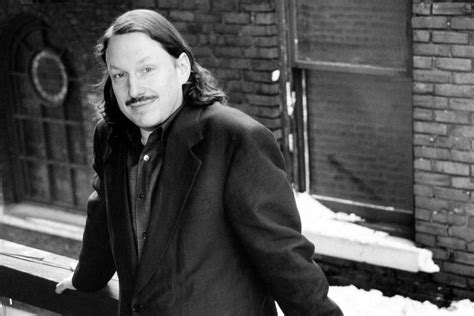Цитата Дейла Карнеги
Критика бесполезна, потому что она заставляет человека защищаться и обычно заставляет его стремиться оправдаться. Критика опасна, потому что она задевает драгоценную гордость человека, задевает его чувство собственной важности и вызывает обиду.
Связанные цитаты
Видите ли, художник, творческий человек может принять критику или жить с критикой гораздо легче, чем с игнорированием. Критика заставляет вас чувствовать себя живым. Если кто-то достаточно обеспокоен, чтобы говорить об этом с бранью, вы чувствуете, что задели за живое, и вы, по крайней мере, «на связи». Вы недовольны тем, что ему это не нравится, но вы чувствуете, что соприкасаетесь с жизнью.
В духовной сфере критика — это испорченная любовь... Если критика войдет в привычку, она разрушит нравственную энергию жизни и парализует духовную силу... Всякий раз, когда вы находитесь в критическом настроении, невозможно войти в общение с Богом. Критика делает вас жестким, мстительным и жестоким, и оставляет вас с лестным помазанием, что вы превосходный человек. Невозможно развивать качества святого и сохранять критическое отношение.
Это было одной из самых больших проблем в партии [Черных пантер]. Критика и самокритика не поощрялись, а то немногое, что давали, часто не принималось всерьез. Конструктивная критика и самокритика чрезвычайно важны для любой революционной организации. Без них люди склонны тонуть в своих ошибках, а не учиться на них.
В духовной сфере критика — это испорченная любовь. В здоровой духовной жизни нет места критике. Критическая способность является интеллектуальной, а не моральной. Если критика войдет в привычку, она разрушит нравственную энергию жизни и парализует духовную силу. Единственный человек, который может критиковать людей, — это Святой Дух.
На самом деле я не очень высокого мнения о мире критики или о практике критики. Я думаю, что восхищаюсь художественной критикой, критикой живописи и скульптуры, гораздо больше, чем, скажем, фильмами и книгами, литературной или кинокритикой. Но практика мне не очень нравится. Я думаю, что там очень много плохих людей.
Большинство людей предпочитают думать, что их обида целиком и полностью виновата в том, на кого они обижаются, и что извращенная логика кажется им разумной. Но мне это совершенно безразлично... Но это популярная точка зрения. Наверное, потому что так проще. Это освобождает вас от бремени любого самоанализа. (Натан Нату)
Люди больше заинтересованы в чтении напыщенных идей, будь они положительными или отрицательными. Из-за этого часть меня потеряла интерес к критике. Я всегда понимал, что критика в основном автобиографична. Очевидно, что в моей критике совершенно ясно, что это автобиография, но я думаю, что так у всех.




































